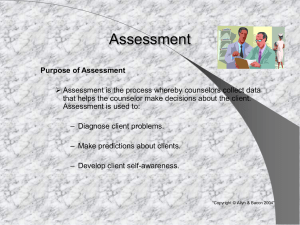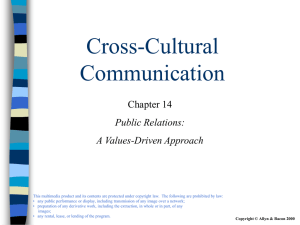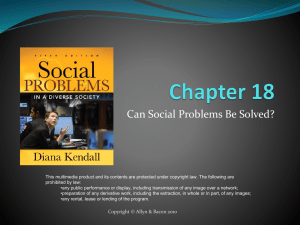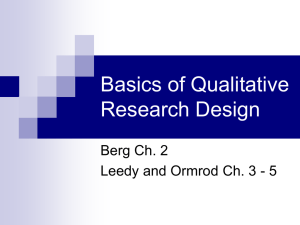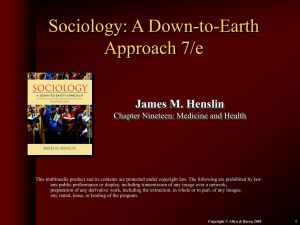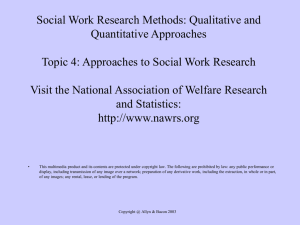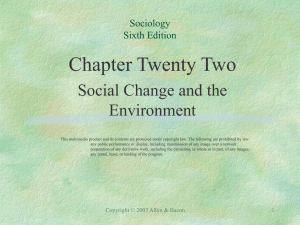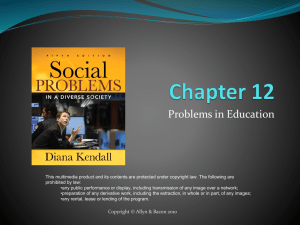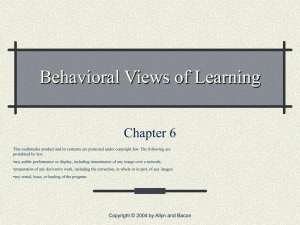chapter2_2_beebe
advertisement
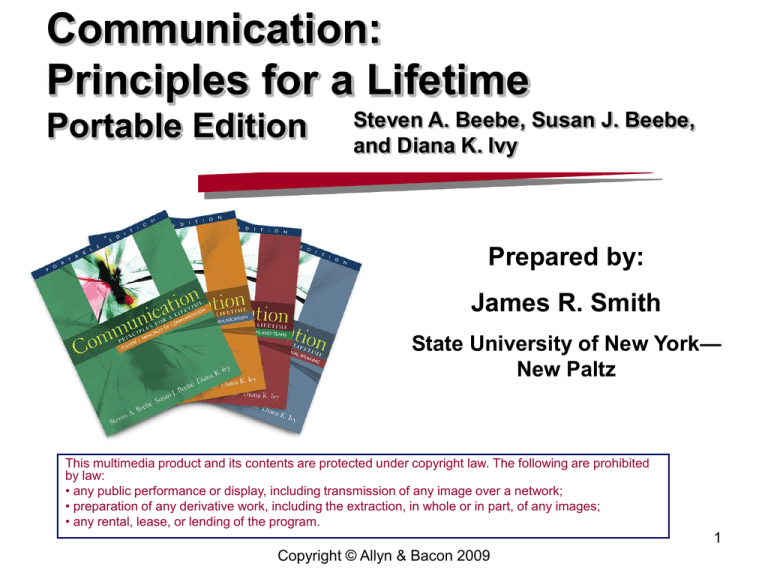
Communication: Principles for a Lifetime Portable Edition Steven A. Beebe, Susan J. Beebe, and Diana K. Ivy Prepared by: James R. Smith State University of New York— New Paltz This multimedia product and its contents are protected under copyright law. The following are prohibited by law: • any public performance or display, including transmission of any image over a network; • preparation of any derivative work, including the extraction, in whole or in part, of any images; • any rental, lease, or lending of the program. 1 Copyright © Allyn & Bacon 2009 CHAPTER 2.2 ENHANCING RELATIONSHIPS 2 Copyright © Allyn & Bacon 2009 FIVE PRINCIPLES 3 Copyright © Allyn & Bacon 2009 OTHER KEY RELATIONSHIPS The previous chapter had a romantic relationship slant. There are three other important types of relationships. • Friendships • Family • Colleagues 4 Copyright © Allyn & Bacon 2009 IMPORTANCE OF FRIENDSHIP There are differences among friendships at four life stages. • Childhood—first friendships typically selfcentered and fleeting • Adolescent—movement away from parents to peers and membership in peer groups • Adult—most valued but often few in number • Elder—increasingly important, enduring, small network of highly valued friends 5 Copyright © Allyn & Bacon 2009 ENHANCING FAMILY RELATIONSHIPS • Satir’s research notes following attributes of healthy families – Members have high sense of self-worth – Communication is direct, clear, honest – Rules are flexible and humane – Family’s links to society are open & hopeful • Good family relationships involve adaptation 6 Copyright © Allyn & Bacon 2009 ENHANCING WORKPLACE RELATIONSHIPS Communication skills are highly valued in the workplace. • Enhancing workplace relationships – Uncertainty reduction causes information seeking – Verbal and nonverbal communication skills – Listening and responding, best managers often the best listeners – Adaptation is critical to successful coworker relationships 7 Copyright © Allyn & Bacon 2009 RELATIONSHIP STAGES INSERT FIGURE 8.1 P. 197 Bottom Top HERE/ Relationship Stages 8 Copyright © Allyn & Bacon 2009 ESCALATION & DE-ESCALATION • Relationships have predictable stages of escalation and de-escalation. • Interpersonal communication is critically important in all stages. 9 Copyright © Allyn & Bacon 2009 ESCALATION STAGES INTIMACY INTENSIFICATION EXPLORATION See text for details of each stage. INITIATION PRE-INTERACTION AWARENESS 10 Copyright © Allyn & Bacon 2009 DE-ESCALATION STAGES TURMOIL OR STAGNATION DE-INTENSIFICATION INDIVIDUALIZATION See text for details of each stage. SEPARATION POST-INTERACTION 11 Copyright © Allyn & Bacon 2009 MANAGING INTERPERSONAL CONFLICT • Interpersonal conflict is a struggle that occurs when two people cannot agree on a way to meet their needs. • The intensity of conflict relates to the intensity of the unmet needs. • Humans are generally need driven and goal-oriented, so it’s not surprising that conflict is goal driven. 12 Copyright © Allyn & Bacon 2009 CONFLICT IN RELATIONSHIPS • Conflict is normal in relationships…it can be constructive or destructive. CONSTRUCTIVE DESTRUCTIVE Cooperation in dealing with differences; builds new insights & patterns Lack of cooperation; it dismantles without restoring 13 Copyright © Allyn & Bacon 2009 HALLMARKS OF CONSTRUCTIVE CONFLICT 1. 2. 3. 4. 5. People change People interact with intent to learn People do not stay stuck in conflict Constructive conflict enhances self-esteem Constructive conflicts have relationship focus 6. Constructive conflict is primarily cooperative Wilmont & Hocker 14 Copyright © Allyn & Bacon 2009 CONFLICT INVOLVES POWER Interpersonal power, or control, means the ability to influence another in the direction we desire. Three types of “power” relationships: • Complimentary—one partner willingly cedes power to another • Symmetrical—similar control behavior in each party, partners compete to dominate or both relinquish control to avoid decision • Parallel—power continually shifts among partners depending upon the situation 15 Copyright © Allyn & Bacon 2009 ASSERTIVE OR AGGRESSIVE COMMUNICATION • Assertive communication takes a listener’s feelings and rights into account. • Aggressive communication is selfserving and does not take listener’s feelings and rights into account. 16 Copyright © Allyn & Bacon 2009 CONFRONTATIONAL STYLES NONCONFRONTATIONAL Giving in to other person CONFRONTATIONAL Win-lose, one person wants control COOPERATIVE Focus on problems to be solved rather than win-lose 17 Copyright © Allyn & Bacon 2009 CONFLICT MANAGEMENT SKILLS MANAGE EMOTIONS MANAGE INFORMATION MANAGE GOALS MANAGE THE PROBLEM 18 Copyright © Allyn & Bacon 2009 EMOTION MANAGEMENT SKILLS • • • • • Select mutually agreed upon time/place Plan your message Monitor nonverbal messages Avoid personal attacks, profanity Use self-talk 19 Copyright © Allyn & Bacon 2009 INFORMATION MANAGEMENT SKILLS • Clearly describe conflict-producing events • “Own” statements via descriptive “I” language • Use effective listening skills • Check understanding of what others do and say 20 Copyright © Allyn & Bacon 2009 GOAL MANAGEMENT SKILLS • Identify your goal and partner’s goal • Identify where goals overlap 21 Copyright © Allyn & Bacon 2009 PROBLEM MANAGEMENT SKILLS • Resist developing solutions until nature of problem and each other’s goals understood • More possible solutions, greater likelihood of successful goal management • Discuss pros and cons of solutions together 22 Copyright © Allyn & Bacon 2009 STUDY HINTS • Read Chapter Summary and Recaps • Know terms in boldface and definitions • Review types of relationships, stages of relationship development, conflict and power, styles and skills of/for managing conflict 23 Copyright © Allyn & Bacon 2009
